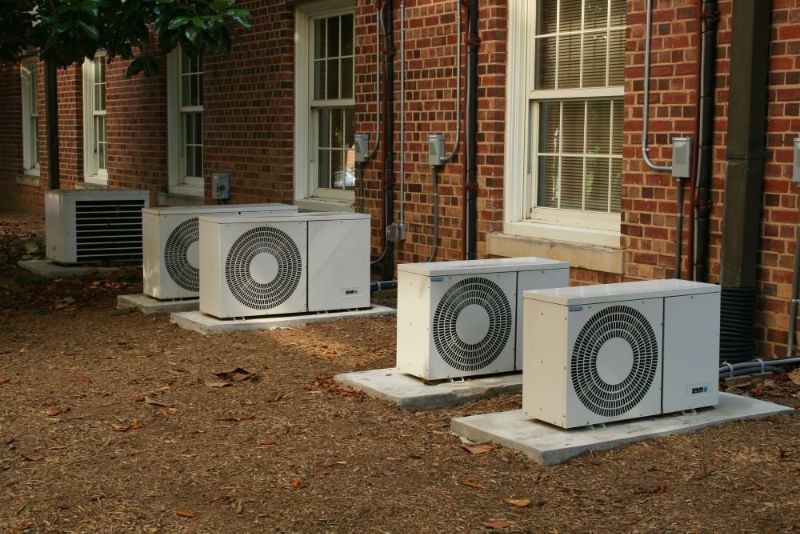A Guide to HVAC Installation for Your Home
Residential HVAC installation is a big decision that shouldn’t be taken lightly. Unlike a portable room heater or a window air conditioning unit, there is much to consider when installing a complete residential HVAC system, such as what type to get, where to have the central unit installed, and how to maintain it.
This guide to residential HVAC systems will help you decide which approach is best for your needs. Read on to learn about the different types of HVAC available, what you can do to maintain the system, and what you can expect from a licenced HVAC technician.
What is HVAC?
HVAC systems often get lumped together with AC installations, which is misleading. While they perform a similar function, residential HVAC systems do far more than air conditioning installations do.
Air conditioners cool the air inside a room or the home by pulling warm air into the unit, which cools that air before pushing it back into the house. There is no outside ventilation involved in the process. The HVAC system brings in ventilation air every time it runs – in either heating or cooling – that is the ventilation code and the law.
before pushing it back into the house. There is no outside ventilation involved in the process. The HVAC system brings in ventilation air every time it runs – in either heating or cooling – that is the ventilation code and the law.
HVAC systems, sometimes referred to as heat pumps, not only heat and cool your home but also filter the air and maintain circulation and ventilation.
The 5 Types of HVAC Systems
Part of choosing the right system lies in learning what’s available and how each type is best. Here’s a breakdown of each of the 5 types of HVAC:
- The split system. Split systems provide heating and cooling and have indoor and outdoor components connected by copper tubes. If you have existing venting, installing a split system will be simple. However, the installation will be more complicated and costly if you don’t have existing venting.
- The hybrid split system. Hybrid split systems can switch between electricity and gas power as needed. This type of system operates the same as a split system, except that they are more energy-efficient.
- The ductless mini-split system. This system offers heating and cooling in one package, like the first two system types, but is much easier to install. They consist of a wall-mounted indoor unit and a corresponding outdoor unit.
- The packaged HVAC system. This type of HVAC system has all its components in one unit, usually placed outside or in an out-of-the-way area inside the home. These systems are less energy-efficient than the other types, but they are well-suited to smaller homes.
- The geothermal HVAC system. This eco-friendly system reduces energy use. Geothermal HVAC systems work by exchanging heating and cooling with the ground through a system of pipes installed in the earth.
How HVAC Installation Costs Compare to Air Conditioning Installation Costs
Every home is different, so exact price projections and comparisons are impossible, but here is a rough guide to the installation costs of HVAC compared to AC installation.
- The cost of air conditioning has a wide range, with small window units averaging $150, while the cost to install central air conditioning can come in around $6,000, with installation costs between $2500 and $7900 extra.
- HVAC systems, on the other hand, can range between $5,000 and $12,000 for the system, plus $6,820 and $12,350 for installation, depending on the type of system you choose to have installed.
Tip: Consider longer-term savings: While the upfront costs of HVAC can be higher, these energy-efficient systems can save you money on your monthly energy bills.
HVAC Installation – What Does A HVAC Technician Do?
An HVAC technician knows how to install air conditioners and HVAC units, but there are steps to their work that are valuable. So when an installation expert comes to your home, they will:
- Assess your needs. Your technician should consider factors like the size of your home, your needs, and your climate when determining what system is best for you.
- Size your system. Determining the correct size unit for your home is part of choosing the best system. A unit that is too big or too small will lead to inefficient heating or cooling, resulting in more significant wear and tear.
- Discuss energy efficiency. Your technician should discuss energy-efficient equipment options since HVAC systems can last up to 20 years.
- Inspect the ducts. If your ductwork is damaged or blocked, your system will work harder than it should. Therefore, the technician should inspect the ductwork for damage and make repairs or clean them up as needed.
- Check the lines. If you have a new system installed, the technician should make sure the lines are the right length, weld them in place and then check to make sure there are no leaks prior to pulling a deep vacuum to protect the system.
- Ensure the system is running well. After the installation, the technician should test the system to ensure it runs correctly.
Post Installation Maintenance: What You Can Do at Home
While it is best to consult an HVAC technician for HVAC installation and repair, you can do a few things to help keep your system in good order.
These include:
- Changing the filters. Filters should be changed (or cleaned, if they are reusable) at least once a month to maintain good air quality in their home.
- Clean the components. Keeping your HVAC system clean and free of debris will help prolong its life and keep it running correctly and efficiently.
- Insulating the home. Having a properly insulated home makes it easier for your HVAC system to maintain the desired temperature indoors, saving you money on your monthly bill.
Post Installation Maintenance: When to Hire a Pro
While there are a few things you can do to maintain your system and save money, a professional should only do some.
These things include:
- Replacement. If you need replacement years down the road, a professional can figure out what size system is best for your home and ensure it’s installed properly and running smoothly.
- Repairs. Unless the homeowner has knowledge of A/C and HVAC repair, it’s best to call a professional. An improperly done repair will cause more harm than good.
- Yearly inspections. HVAC and A/C systems should have annual inspections. During these inspections, a technician will run through a checklist to give your system a complete checkup before repairing any damaged or worn-out parts.
Lockhart Industries: Your Vancouver Island HVAC Experts
Are you considering having residential HVAC installation or AC installation? Speak to an expert first to determine which system is the most effective and cost-efficient for your home.
At Lockhart Industries, our technicians will guide you through every step of the process, from choosing the system to ensuring it runs correctly.
If you live on lower Vancouver Island, BC, contact us to get started with your HVAC installation journey.
Easy Financing with…
Start Saving Money NOW! There’s no need to putting off a more Energy Efficient, Cost Effective home comfort system. We make it simple!
With Financeit you can:
- Make additional payments any time without penalty.
- Get a lower payment by choosing an amortization period of up to 180 months. 7.99% to 11.99% interest rate.*
- We add a small fee to the loan amount. There are no hidden or additional charges
- Bank-level encryption (AES-256 bit SSL) to protect your personal information.




